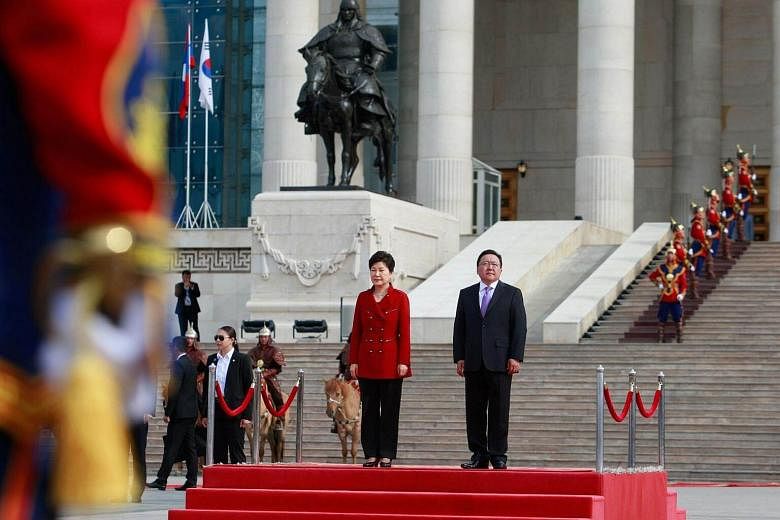Not many had expected that South Korea could deploy the United States' advanced missile defence system as easily as it brings in an American-made automobile. But the allies' decision to deploy it here is facing increasingly formidable challenges.
There are two major fronts the Park Geun-hye administration are confronting regarding the deployment of the Terminal High Altitude Area Defense (Thaad) system - opposition from China and within South Korea.
China's protests had long been anticipated, but latest developments certainly raise concerns.
It seems apparent that Chinese authorities are orchestrating a propaganda war against South Korea. China's media - which is under strict control by the state - is making an onslaught on the Seoul government over the planned deployment the Thaad system in South Korea. They even pinpointed Park and threatened a "strike."
The media blitz is accompanied by developments which are believed to be related to the Chinese government's position on Thaad. These include shutdown of a Chinese agency that had been taking care of commercial visas for South Korean businesspeople.
Korean officials also report that it takes more time for Korean products to go through the Chinese customs clearance.
Signs of troubles also come in the entertainment and culture fields.
There have been sporadic reports of glitches in hallyu-related entertainment and cultural events in China and tour programs involving Koreans and Chinese.
It has yet to be seen whether these can be threaded into a government coordinated reprisal.
Unlike its media that keeps rolling out a barrage of editorials and columns rebuking South Korea, no senior Chinese official has publicly spoken about retaliation against the Seoul government.
Seoul officials also argue it still is premature to believe that the Chinese government is taking "acts of retaliation."
But the increasingly fierce media offensive -- which may fan anti-Seoul sentiment among the public -- is evidence that the Chinese government wants to take on the Seoul government.
This hardline attitude contrasts with that toward the US as China is not seriously confronting Washington although it believes the U.S. is deploying the Thaad battery in part to increase its surveillance of the Chinese military.
It is sad that China fails to act in a manner fitting a new global superpower and only demonstrates its usual small-mindedness.
Without trying to search its own soul for failing to check North Korea -- its longtime client state -- from developing nuclear arsenals and missiles, it only tries to bully its smaller neighbour which is under the direct threat of the rogue regime in the North.
China may well know that in its nature, the Thaad system is purely for defence. It would also know that the Park administration will never revoke the decision to deploy it in South Korea until there comes a lasting solution to the nuclear and missile threats from North Korea.
Its leaders should be wiser than trying to use the Thaad issue as leverage in its foreign policy -- be it against South Korea or the U.S.
It only reminds us and the world that China has a very long way to go to become a trusted neighbour and a respected, responsible global power.
The Korea Herald is a member of The Straits Times media partner Asia News Network, an alliance of 21 newspapers.

